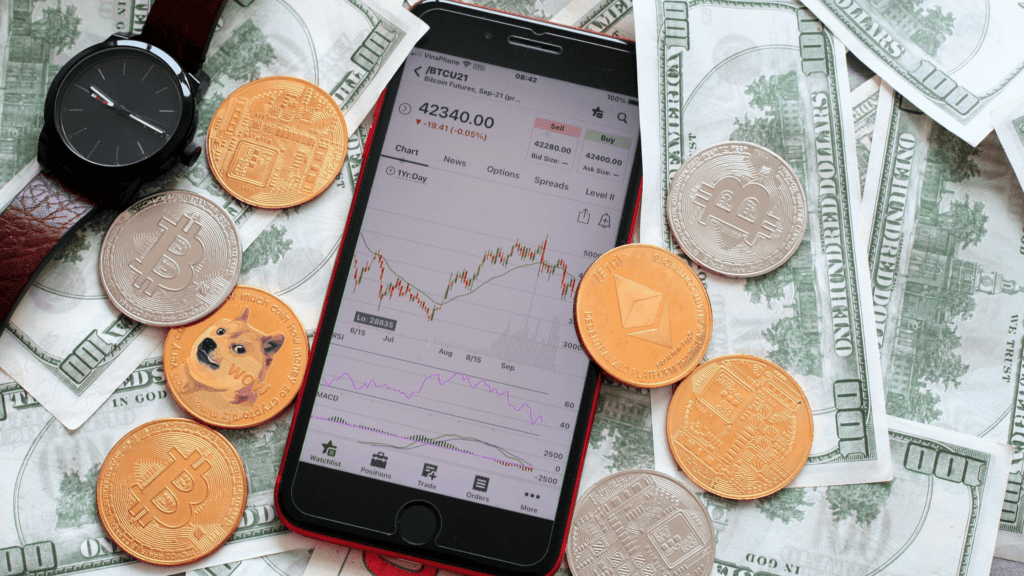Cryptocurrencies are all the rage these days and for a good reason. They offer a new secure, fast, and efficient way of handling transactions. But before you invest in cryptocurrencies, you should know a few things. Here are seven important points to consider when it comes to crypto interest accounts:
1. You Need to Deposit a Minimum Amount
When saving money, many people think that the smaller the deposit, the better. But this isn’t always true when it comes to crypto interest accounts. Most platforms require a minimum deposit to open an account and start earning interest.
This is simple: platforms need to protect themselves from risk. By requiring a minimum deposit, they can ensure that investors are serious about their commitment and aren’t just looking to make a quick buck. This also helps to weed out speculators who might destabilize the market with their wild swings in investment. So if you’re interested in earning interest on crypto, be prepared to make a minimum deposit. How much that minimum deposit is will vary from platform to platform, but it’s typically somewhere between $100 and $500.
2. Crypto Interest Rates Can Vary Greatly
When it comes to interest rates, crypto is all over the map. Some platforms offer rates as high as 10%, while others offer rates as low as 0.5%. The rate you earn will depend on several factors, including the type of currency you’re depositing, the amount you’re depositing, and the length of time you’re willing to lock up your funds.
In general, though, crypto interest rates tend to be higher than traditional savings account rates. This is because cryptocurrencies are still a relatively new technology, so there’s more risk involved. As such, platforms need to offer higher returns to attract investors. But as the market matures and becomes more stable, we expect interest rates to decrease.
Also, cryptocurrencies are subject to price fluctuations, so the value of your investment can go up or down over time. This means that you could end up losing money if the market takes a turn for the worse.
3. You May Need to Lock Up Your Funds for some time
When you open a traditional savings account, you can typically withdraw your money at any time without penalty. But when it comes to crypto interest accounts, things are often different. Many platforms require you to lock up your funds for a period to earn interest. The length of time can vary from platform to platform, but it’s typically between one and six months.

The reason for this is twofold. First, it helps to protect the platform from investors who might want to cash out quickly after earning interest. Second, it allows the platform to reinvest your money and earn even more interest. So if you’re considering opening a crypto interest account, be prepared to lock up your funds for a while.
4. The Interest Is Paid in the Same Currency as Your Deposit
When you deposit into a crypto interest account, the interest will be paid in the same currency. So, if you deposit Bitcoin, you’ll receive Bitcoin interest payments. This is different from traditional savings accounts, which typically pay interest in the same currency as your country’s fiat currency (e.g. USD in the United States).
The reason for this is that cryptocurrencies are still largely unregulated. This means that there’s no central authority to issue new currency, so each platform creates its version of the currency. As such, when you deposit one currency, you can only receive interest payments in that same currency.
5. You May Be Required to Provide Personal Information
When you open a traditional savings account, the bank typically requires personal information such as your name, address, and Social Security number. While this may seem like a hassle, it’s a way to protect you from fraud.
However, when it comes to crypto interest accounts, the requirements are often much different. This is because cryptocurrencies are still largely unregulated, so no central authority requires platforms to collect this information. Many platforms will only need an email address to open an account.
While this may seem like a good thing, it’s important to remember that this also means that there’s no way to track down the platform if something goes wrong. If you’re considering investing in a crypto interest account, be sure to do your research and only invest in platforms you trust.
6. You May Need to Pay Taxes on Your Interest Earnings
Traditional savings accounts are typically subject to taxation, and crypto interest accounts are no different. This is because the interest you earn is considered income, so it’s subject to the same taxes as any other income.
The exact taxes you’ll need to pay will vary depending on your country of residence, but generally, you can expect to pay income tax, capital gains tax, or both. So if you’re considering investing in a crypto interest account, be sure to factor in the taxes you’ll need to pay on your earnings.
7. Some Accounts Offer Compounding Interest
While most traditional savings accounts only pay interest on the principal (the amount of money you deposit), some crypto interest accounts offer compound interest. This means that the interest is paid not only on the principal but also on the interest accumulated over time.
Compound interest can help you earn more money over time, but it also means that your investment is at risk for longer periods. So if you’re considering investing in a crypto interest account, consider both the risks and the benefits before making a decision.
Cryptocurrency is a new and exciting way to invest your money, but it’s important to remember that it’s still a risky investment. Before you decide to invest in a crypto interest account, be sure to do your research and understand the risks involved. But if you’re willing to take on the risk, crypto interest accounts can be a great way to earn extra money.
These are just a few things you should know before creating crypto interest accounts. Cryptocurrencies are still largely unregulated. This means that there’s no central authority to issue new currency, so each platform makes its version of the currency. As such, when you deposit one currency, you can only receive interest payments in that same currency.

